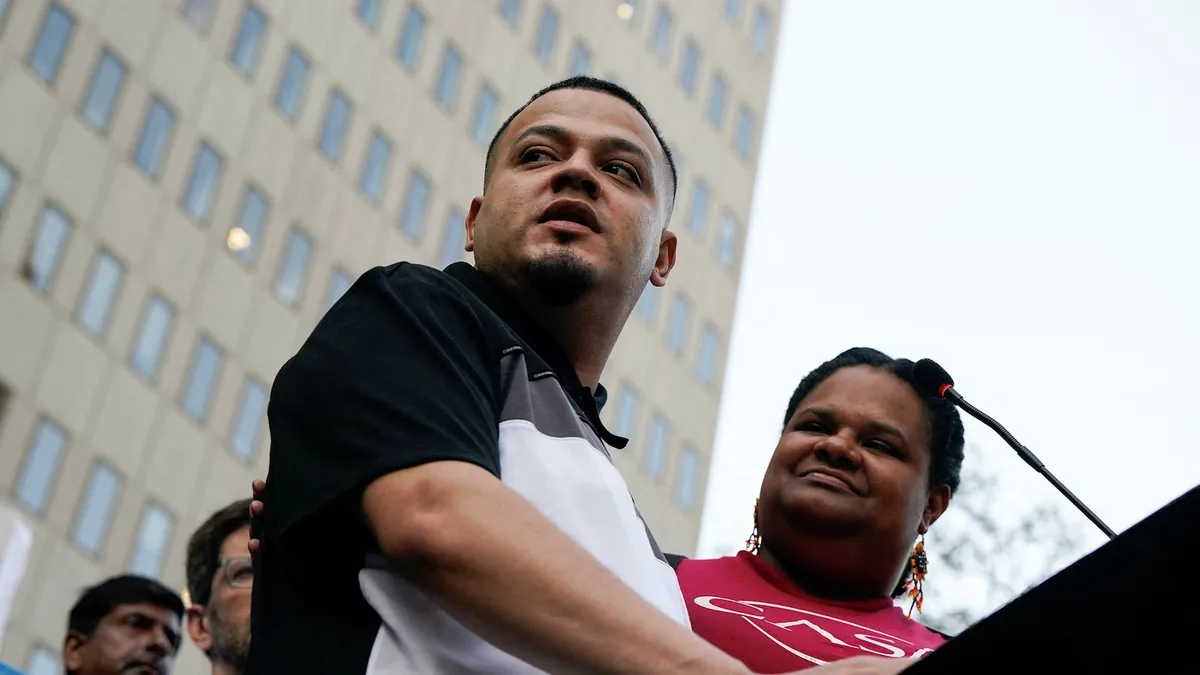
Attorneys representing Kilmar Abrego Garcia have submitted an emergency motion to reopen his immigration case in order to pursue asylum in the United States. This legal action was documented in a court filing made on Tuesday. After being rearrested on Monday in Maryland, Abrego Garcia is currently detained in a Virginia immigration center. This follows his release from criminal custody in Tennessee just days earlier.
Abrego Garcia's detention comes amid a temporary block on his deportation by the federal government, allowing for further proceedings in a habeas corpus case. In their proposed scheduling order filed on Tuesday, his attorneys noted that a motion to reopen his case was submitted to an immigration judge at 5 PM the previous day. The legal team is requesting that the immigration judge resolve this motion within two weeks.
The emergency motion highlights that because Abrego Garcia was previously deported and then returned to the U.S., he is now eligible to apply for asylum within one year of his last entry. His attorneys are urging the Baltimore immigration court to grant a stay of removal, providing Abrego Garcia the opportunity to seek protection from potential persecution and torture in Uganda, a country to which he may be deported.
Abrego Garcia, who is a native of El Salvador, fears persecution and torture in Uganda due to his status as a deportee without legal standing. His attorney emphasized that there is a substantial risk of him being sent back to El Salvador by the Ugandan government, where he could face renewed threats against his safety within the notorious CECOT mega-prison.
In their arguments, the attorneys contend that Abrego Garcia was unaware of the possibility of deportation to Uganda, which deprived him of the opportunity to file for protection. Furthermore, they seek to designate Costa Rica as his preferred country of removal, as he has recently received an offer of refugee status from Costa Rican authorities, who have assured him he would not face detention or be deported back to El Salvador.
Abrego Garcia was deported to El Salvador in March despite a court order from 2019 that prohibited his deportation due to fears of persecution. The Trump administration had previously accused him of being associated with the criminal gang MS-13, allegations that both his family and legal representatives vehemently deny. After being returned to the U.S. in June to face charges in Tennessee related to the alleged transportation of undocumented migrants, Abrego Garcia pleaded not guilty.
Following his release from custody on Friday, he was taken into immigration custody after checking in with the ICE office in Baltimore on Monday. His legal team asserts that he may be deported to Uganda after rejecting a plea deal that would have allowed him to return to Costa Rica in exchange for a guilty plea to the human smuggling charges.
In another filing on Tuesday, Abrego Garcia's attorneys criticized government officials for his sudden rearrest, arguing against the government's request for additional time to respond to claims of vindictive and selective prosecution. A magistrate judge in Tennessee granted the extension, but the defense maintains that the government’s actions have rendered Abrego Garcia temporarily unavailable to them.
The legal team argues that the government is undermining the pre-trial release ordered by the Tennessee court and should not be permitted to delay the proceedings as a result of its own actions. They accuse the government of attempting to evade accountability and express concern that it seeks to postpone its response until after Abrego Garcia is deported.
In a separate filing, the government responded to these allegations, asserting that it did not attempt to coerce Abrego Garcia into accepting an involuntary plea. Acting United States Attorney Robert McGuire clarified that prior to the plea negotiation, the government had not offered a third-party country placement, contrary to the defendant's claims. McGuire stated that the government was actively searching for such options in good faith to facilitate a potential plea deal.
The ongoing legal battle surrounding Kilmar Abrego Garcia highlights the complexities of immigration law and the urgent need for fair treatment of individuals facing deportation. As his case unfolds, the focus remains on the implications of his potential removal and the protections available to him under U.S. immigration law.